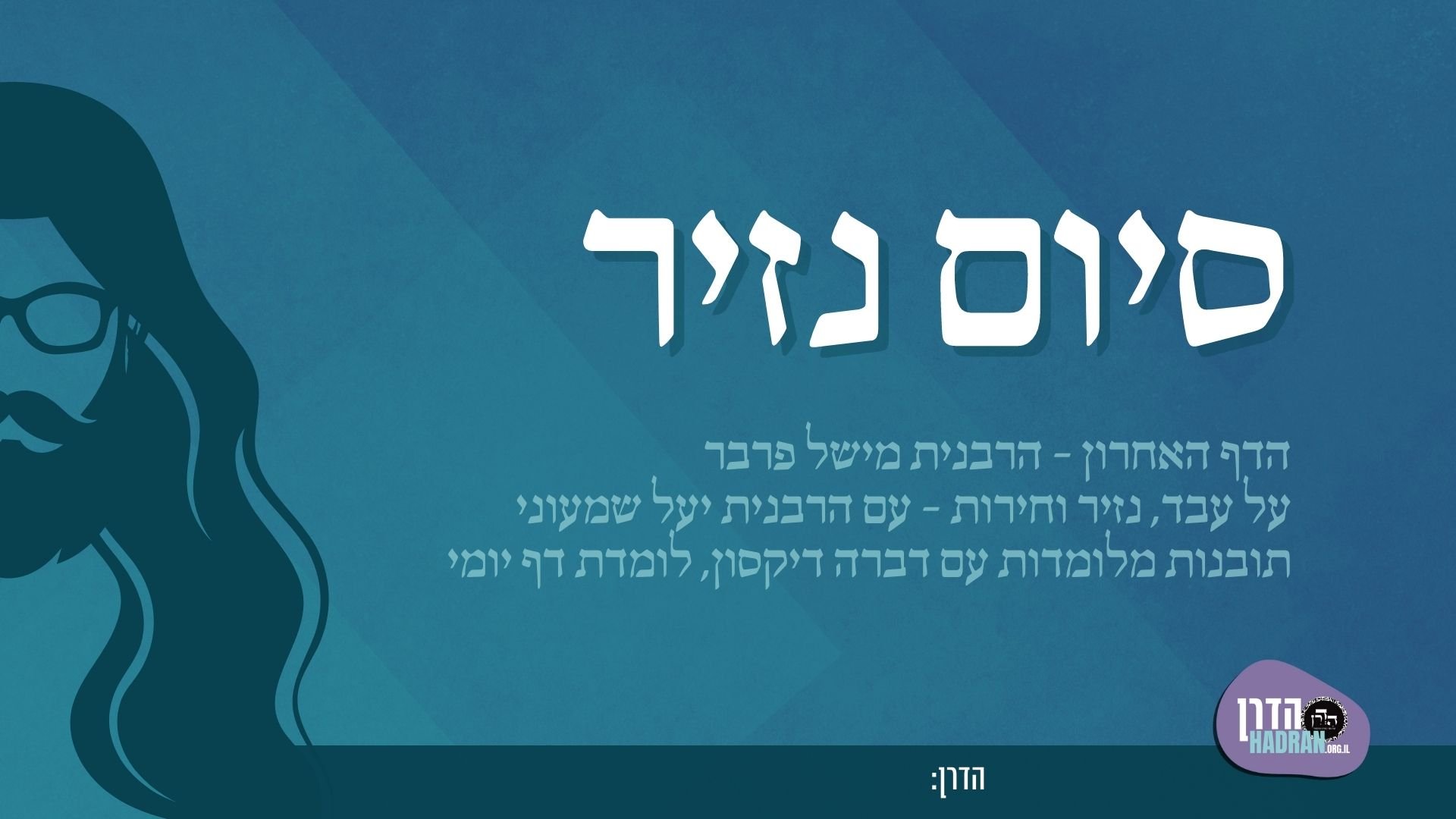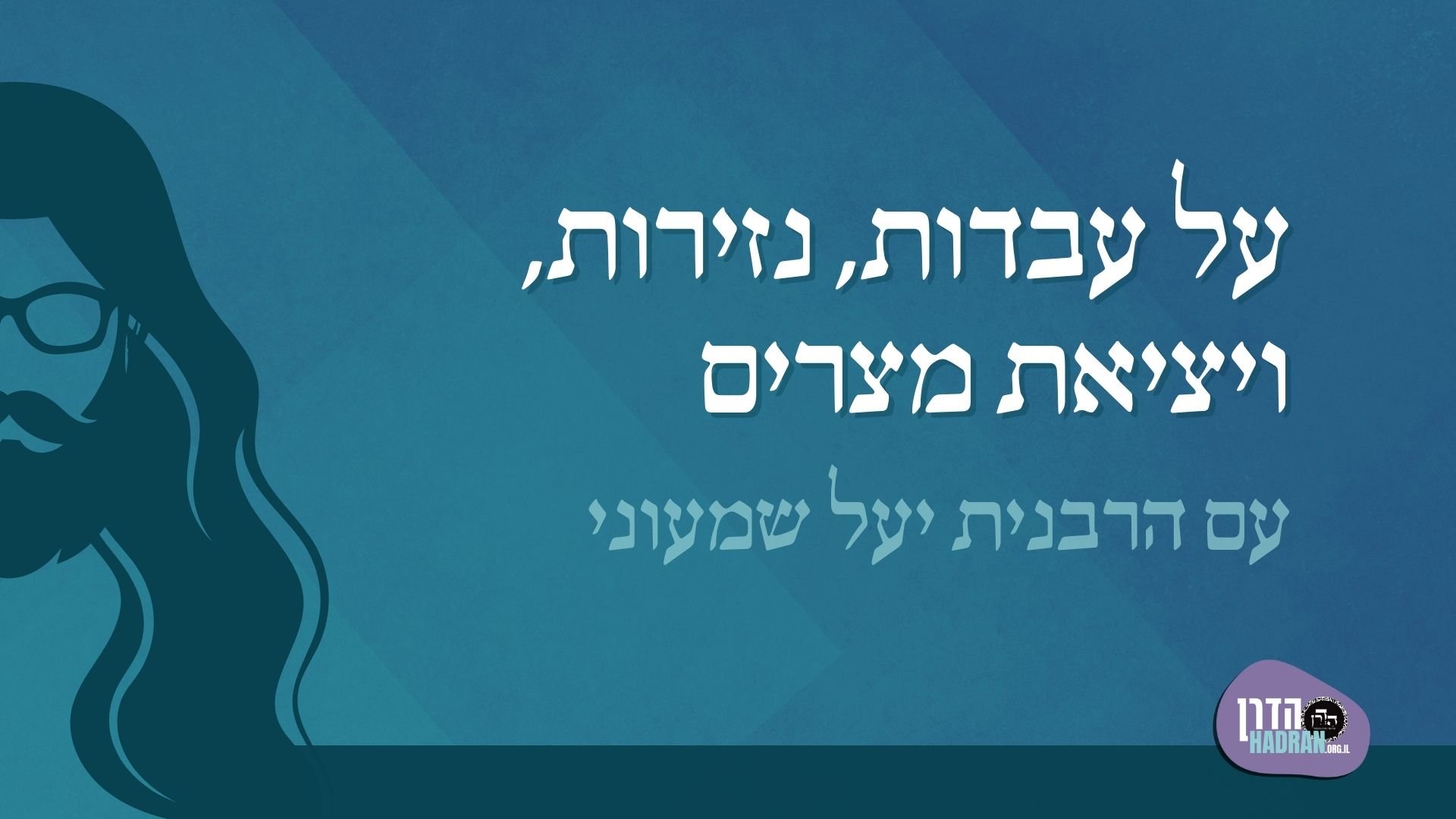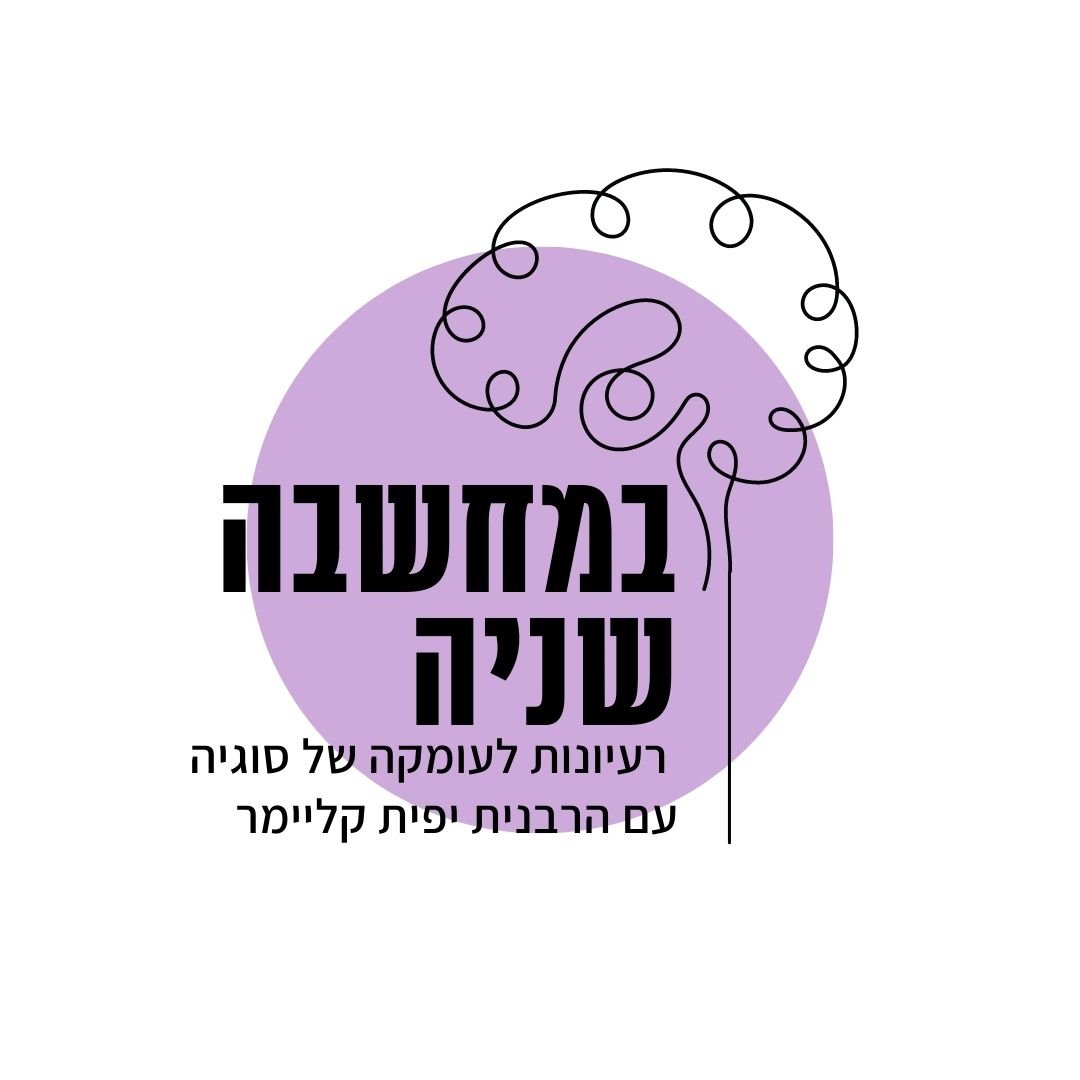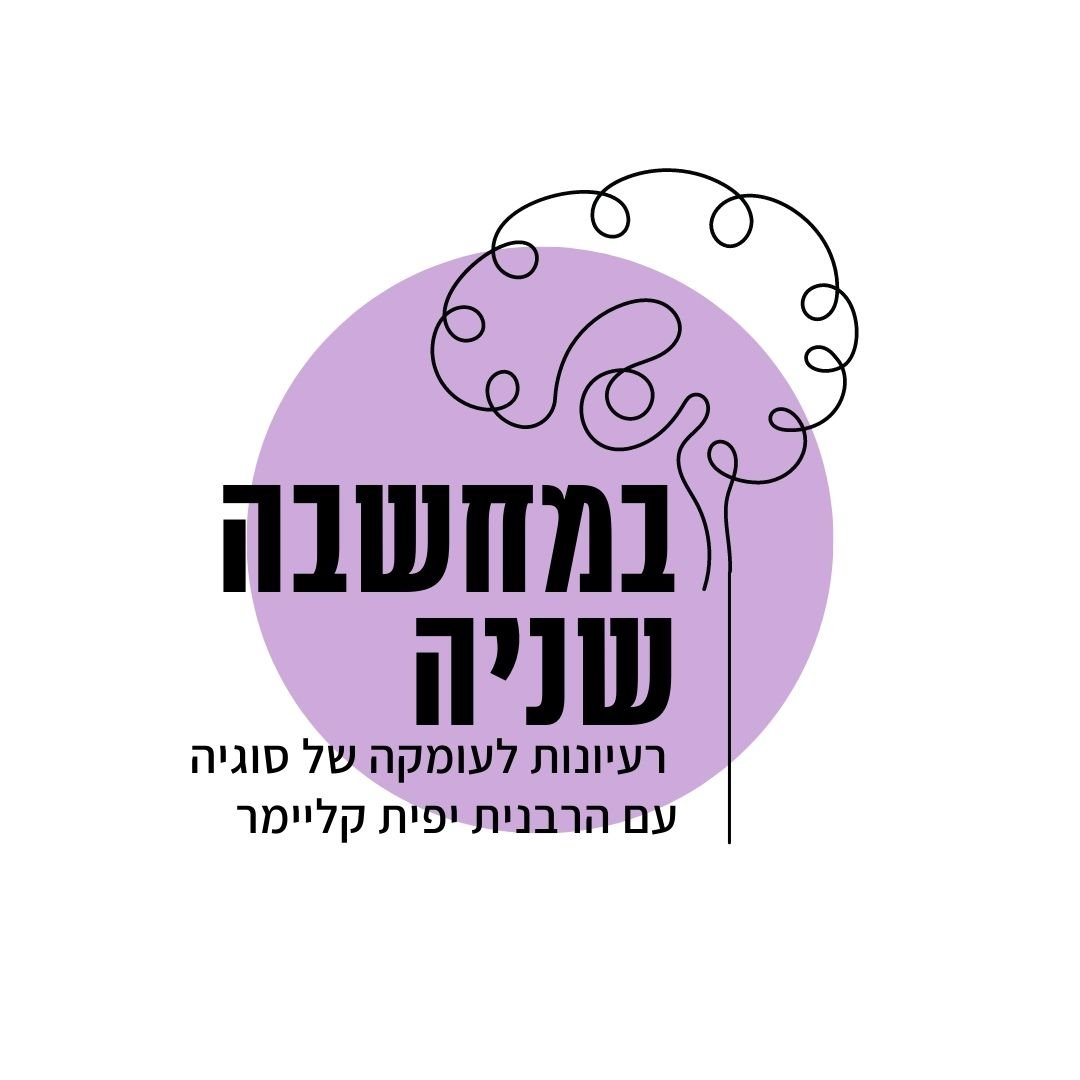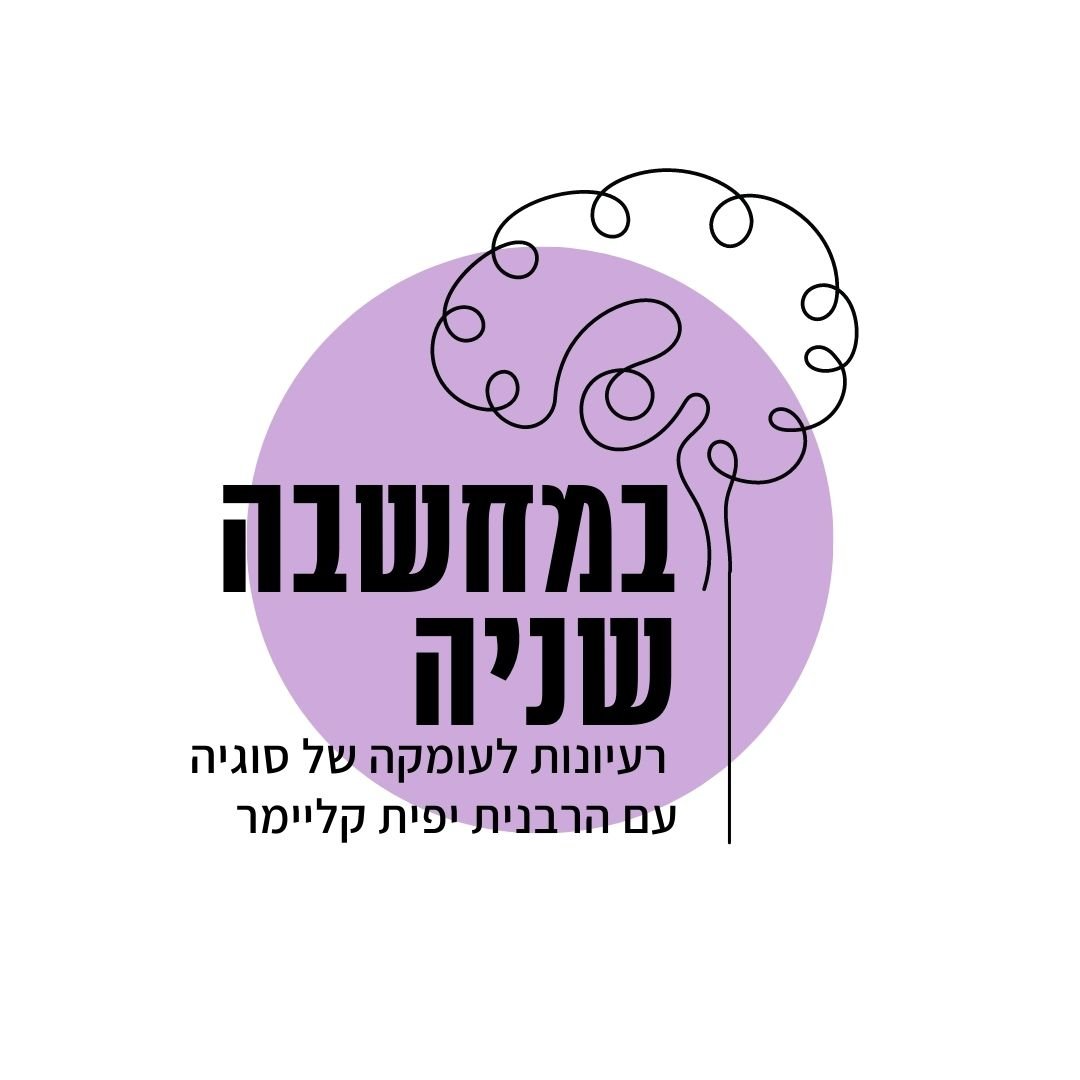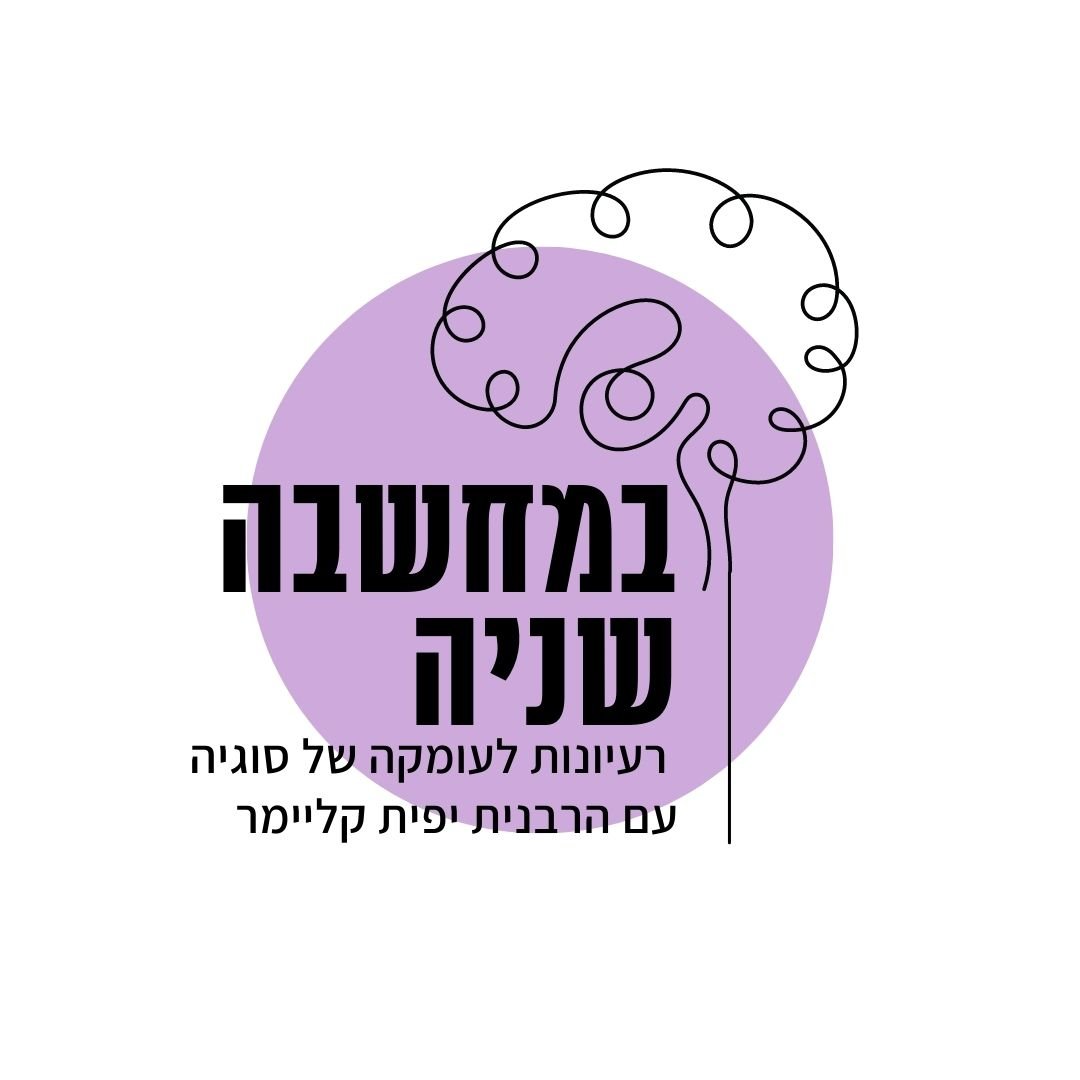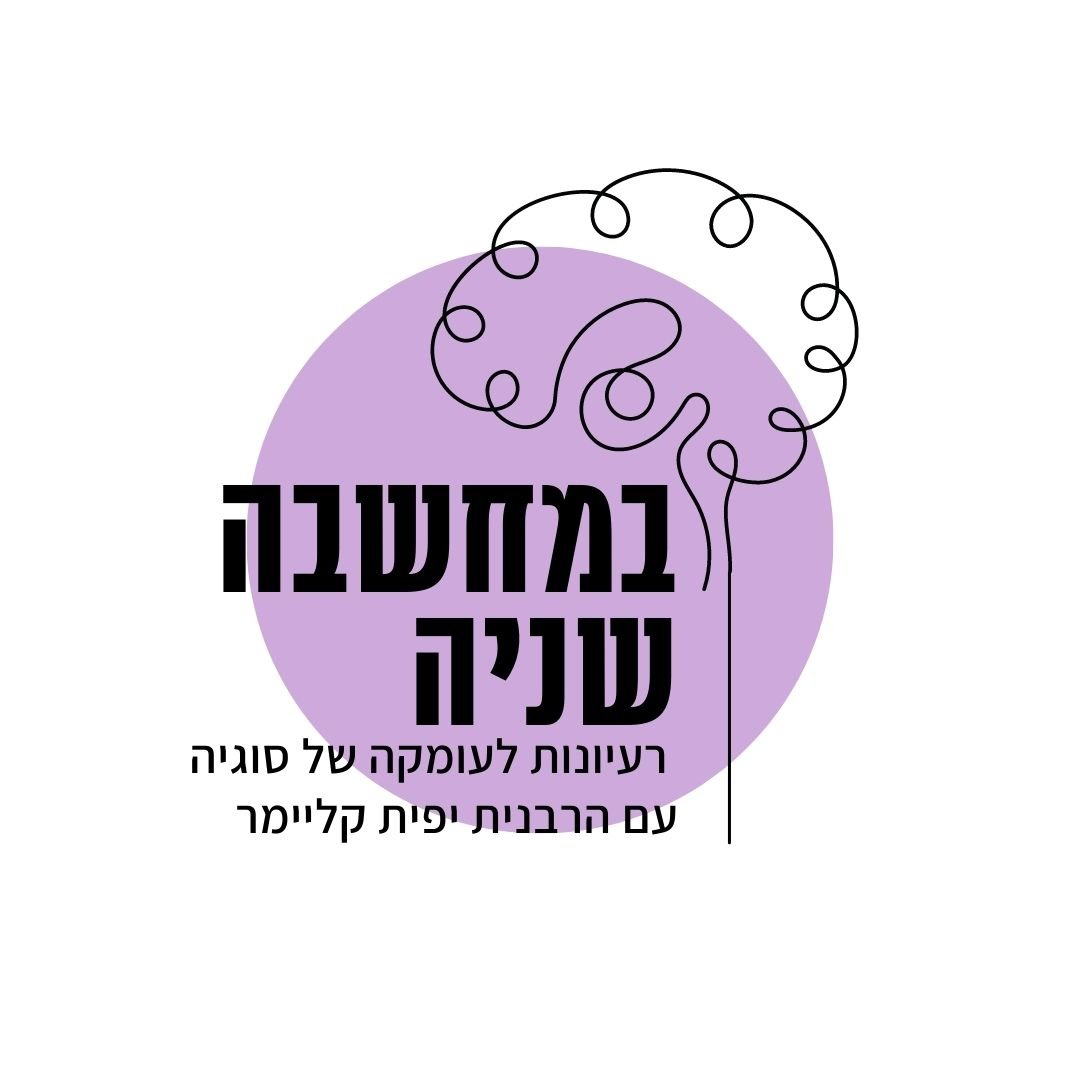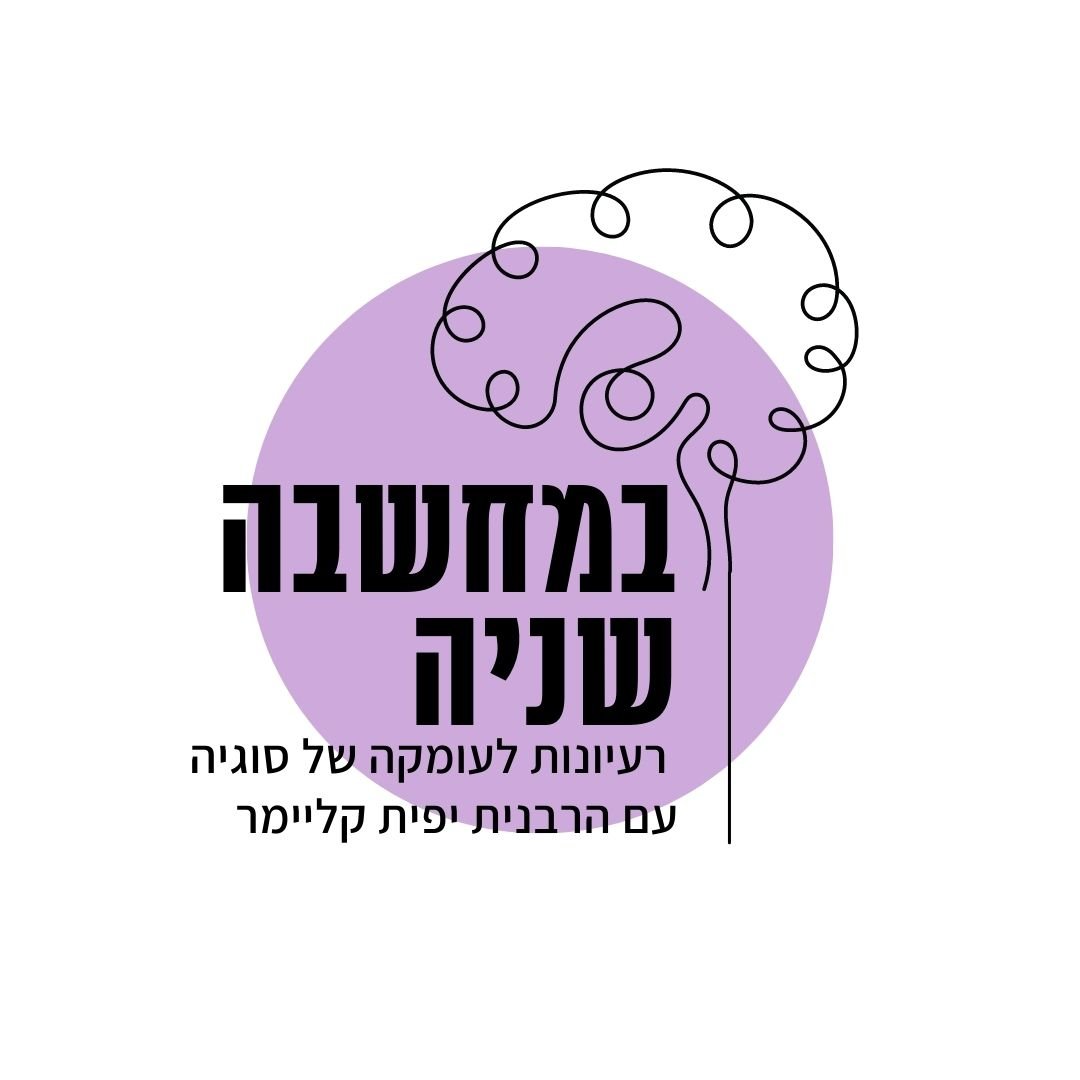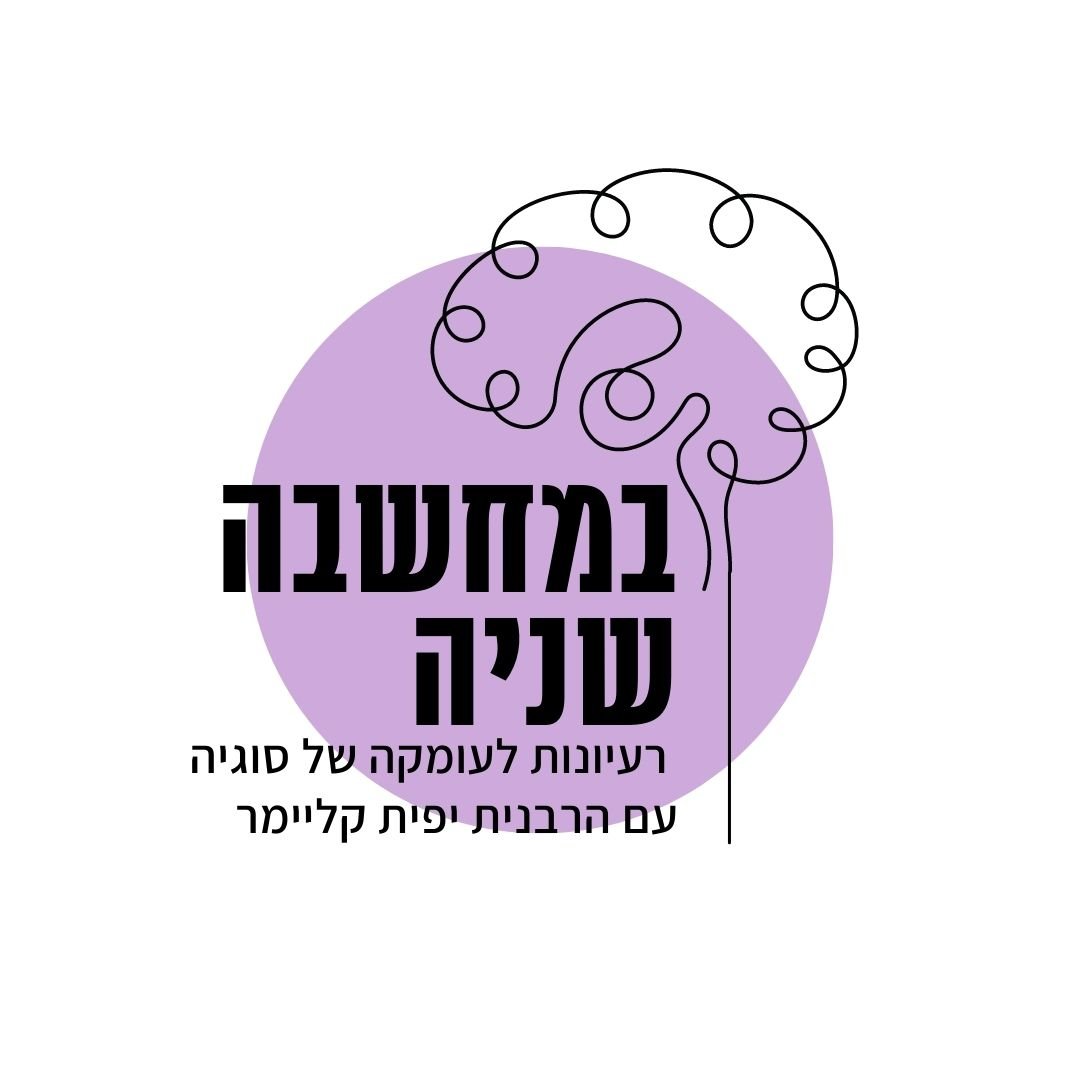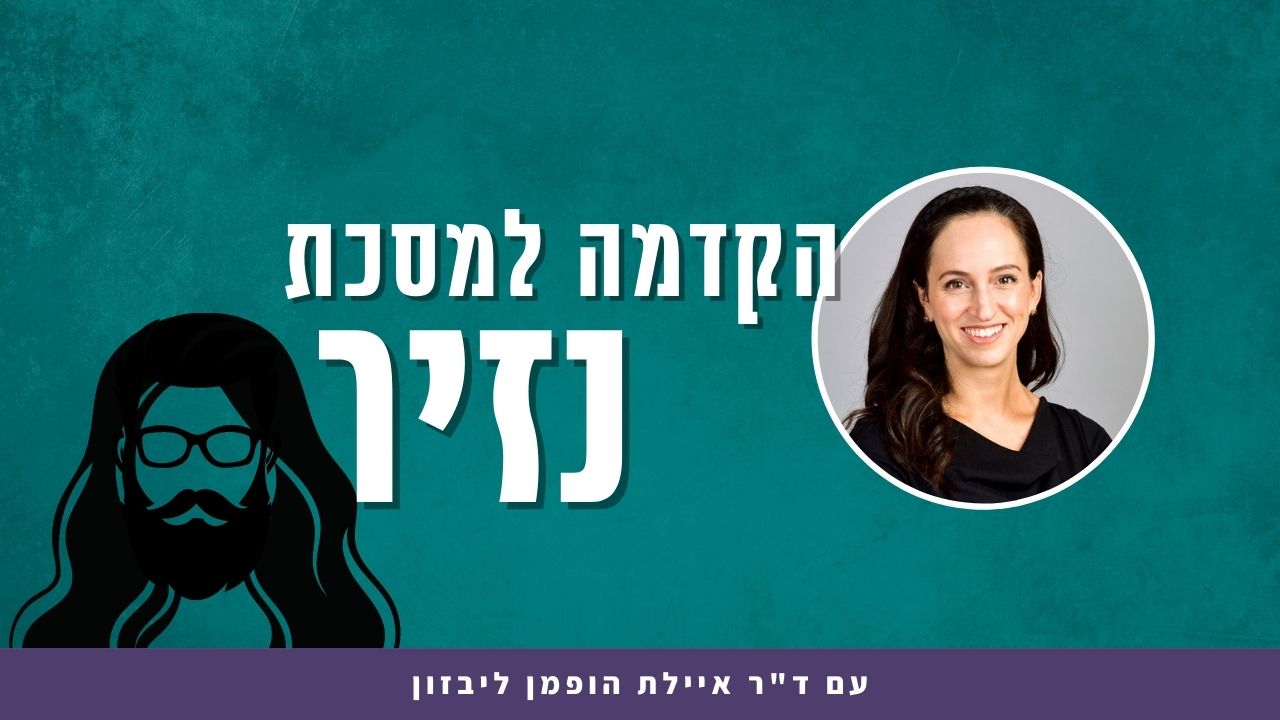נזיר כ
וּבֵית הִלֵּל סָבְרִי: מִשּׁוּם אַוֵּירָא גָּזְרוּ עָלֶיהָ? לָא, דְּכוּלֵּי עָלְמָא מִשּׁוּם גּוּשָׁהּ גָּזְרוּ עָלֶיהָ, וּבֵית שַׁמַּאי סָבְרִי בִּסְתָם נְזִירוּת קָנֵיסְנָא, וּבֵית הִלֵּל סָבְרִי: כִּי קָנֵיסְנָא — בִּתְחִילַּת נְזִירוּת.
and Beit Hillel hold: They decreed with regard to its airspace, and it is a severe level of ritual impurity, so he must start his naziriteship from the beginning once he arrives in Eretz Yisrael. The Gemara rejects this possibility: No, it may be that everyone agrees that they decreed only with regard to its earth, and they disagree merely over the details of the penalty. Beit Shammai hold that we penalize him with an unspecified term of naziriteship, which is thirty days, and Beit Hillel hold that when we penalize, we require him to return to the beginning of his term of naziriteship, and he must observe the entire term of naziriteship afresh.
מַעֲשֶׂה בְּהֵילֵנִי הַמַּלְכָּה וְכוּ׳. אִיבַּעְיָא לְהוּ: בְּשֶׁנִּטְמֵאת, וְאַלִּיבָּא דְּבֵית שַׁמַּאי? אוֹ דִּלְמָא בְּשֶׁלֹּא נִטְמֵאת, וְאַלִּיבָּא דְּבֵית הִלֵּל?
§ The mishna taught: An incident occurred with regard to Queen Helene. A dilemma was raised before them: What is the meaning of Rabbi Yehuda’s statement? Does he hold that the case was one where she became impure in Eretz Yisrael, but after thirty days, and not after seven years, and Rabbi Yehuda spoke in accordance with the opinion of Beit Shammai, who hold that she was required to observe only a further thirty days upon her arrival in Eretz Yisrael, and due to her becoming impure she had to observe again her original term of naziriteship, for a total of fourteen years? Or perhaps the case is one where she did not become impure at the end of the seven years in Eretz Yisrael, and he ruled in accordance with the opinion of Beit Hillel that she had to observe an additional seven years upon her entry to Eretz Yisrael.
תָּא שְׁמַע: עָלְתָה לָאָרֶץ, וְהוֹרוּהָ בֵּית הִלֵּל שֶׁתְּהֵא נְזִירָה עוֹד שֶׁבַע שָׁנִים אֲחֵרוֹת וְכוּ׳. וְאִי סָלְקָא דַעְתָּךְ בְּשֶׁנִּטְמֵאת וְאַלִּיבָּא דְּבֵית שַׁמַּאי, אִי הָכִי, ״רַבִּי יְהוּדָה אוֹמֵר לֹא הָיְתָה נְזִירָה אֶלָּא אַרְבַּע עֶשְׂרֵה שָׁנָה״? ״אַרְבַּע עֶשְׂרֵה שָׁנָה וּשְׁלֹשִׁים יוֹם״ מִיבְּעֵי לֵיהּ!
The Gemara suggests: Come and hear a proof from the mishna: She ascended to Eretz Yisrael, and Beit Hillel instructed her that she should be a nazirite for an additional seven years, etc. And if it enters your mind that Rabbi Yehuda says that the case is one where she became ritually impure after observing thirty days of naziriteship following her arrival to Eretz Yisrael, and he spoke in accordance with the opinion of Beit Shammai, if so, why does Rabbi Yehuda say she was a nazirite for only fourteen years? He should have said fourteen years and thirty days, as even Beit Shammai obligate her to observe a thirty-day period of naziriteship in Eretz Yisrael. It must be that Rabbi Yehuda holds that she observed seven additional years, in accordance with the opinion of Beit Hillel, and says that she did not become ritually impure.
תַּנְיָא נָמֵי הָכִי, רַבִּי יְהוּדָה אוֹמֵר מִשּׁוּם רַבִּי אֱלִיעֶזֶר: דְּאָמַר קְרָא ״זֹאת תּוֹרַת הַנָּזִיר״, הַתּוֹרָה אָמְרָה: כִּי נִטְמָא בְּיוֹם מְלֹאת — תֵּן לוֹ תּוֹרַת נָזִיר.
The Gemara adds: This is also taught in a baraita, that Rabbi Yehuda’s opinion cannot be established in accordance with Beit Shammai: Rabbi Yehuda says in the name of Rabbi Eliezer that the verse states: “This is the law of the nazirite when the days of his consecration are fulfilled” (Numbers 6:13). The Torah states: When he becomes impure on the day of the completion of his naziriteship, even if it was at the end of a lengthy term, give him the law of an unspecified nazirite, and he must observe a thirty-day term. Therefore, if she became impure at the end of those thirty days that Beit Shammai obligates her to observe, she should have been required to observe naziriteship for only thirty additional days, rather than a full seven years. Rather, Rabbi Yehuda certainly accepts the opinion of Beit Hillel, and claims that she did not become ritually impure.
מַתְנִי׳ מִי שֶׁהָיוּ שְׁתֵּי כִּיתֵּי עֵדִים מְעִידוֹת אוֹתוֹ, אֵלּוּ מְעִידִים שֶׁנָּזַר שְׁתַּיִם, וְאֵלּוּ מְעִידִים שֶׁנָּזַר חָמֵשׁ, בֵּית שַׁמַּאי אוֹמְרִים: נֶחְלְקָה הָעֵדוּת — וְאֵין כָּאן נְזִירוּת, וּבֵית הִלֵּל אוֹמְרִים: יֵשׁ בִּכְלַל חָמֵשׁ שְׁתַּיִם, שֶׁיְּהֵא נָזִיר שְׁתַּיִם.
MISHNA: In a case of one who had two sets of witnesses testifying about him that he had taken a vow of naziriteship for a certain period, and these witnesses testify that he took a vow of naziriteship for two terms, and these witnesses testify that he took a vow of naziriteship for five terms. Beit Shammai say: The testimony is divided, i.e., the testimonies contradict each other, and since the testimonies are in conflict they are both rejected entirely and there is no naziriteship here at all. And Beit Hillel say: The testimonies are not completely in conflict with each other, as two terms are included in five terms, and the unanimous testimony, that he is a nazirite for two terms, is accepted.
גְּמָ׳ מַתְנִיתִין דְּלָא כִּי הַאי תַּנָּא, דְּתַנְיָא, רַבִּי יִשְׁמָעֵאל בְּנוֹ שֶׁל רַבִּי יוֹחָנָן בֶּן בְּרוֹקָא אוֹמֵר: לֹא נֶחְלְקוּ בֵּית שַׁמַּאי וּבֵית הִלֵּל עַל שְׁתֵּי כִּיתֵּי עֵדִים, אַחַת אוֹמֶרֶת שְׁתַּיִם, וְאַחַת אוֹמֶרֶת חָמֵשׁ, שֶׁיֵּשׁ בִּכְלַל חָמֵשׁ שְׁתַּיִם. עַל מָה נֶחְלְקוּ — עַל כַּת אַחַת, אֶחָד אוֹמֵר שְׁתַּיִם, וְאֶחָד אוֹמֵר חָמֵשׁ, שֶׁבֵּית שַׁמַּאי אוֹמְרִים: נֶחְלְקָה עֵדוּתָן. וּבֵית הִלֵּל אוֹמְרִים: יֵשׁ בִּכְלַל חָמֵשׁ שְׁתַּיִם.
GEMARA: The Gemara comments: The mishna is not in accordance with the opinion of this tanna, as it is taught in a baraita that Rabbi Yishmael, son of Rabbi Yoḥanan ben Beroka, says: Beit Shammai and Beit Hillel did not disagree with regard to the halakha in the case of two sets of witnesses, one of whom says two terms and one of whom says five terms, that two terms are included in five terms, and he must observe two terms of naziriteship. With regard to what did they disagree? They disagreed with regard to one set of two witnesses, one of whom says two terms and one of whom says five terms, and that Beit Shammai say: In that case their testimony is divided, as the two witnesses are in conflict and there is no testimony here at all. And Beit Hillel say: Since two terms are included in five terms, their testimony is in agreement with regard to two terms, and therefore he must observe two terms.
אָמַר רַב: הַכֹּל מוֹדִים בְּמוֹנֶה. אֲמַר לֵיהּ רַב חָמָא לְרַב חִסְדָּא: מַאי קָאָמַר? אִילֵּימָא: אֶחָד אוֹמֵר חָמֵשׁ וְלֹא שְׁתַּיִם, וְאֶחָד אוֹמֵר שְׁתַּיִם וְלֹא חָמֵשׁ — הָא קָא מַכְחֲשִׁי אַהֲדָדֵי! אֶלָּא: אֶחָד אוֹמֵר אַחַת וּשְׁתַּיִם, וְאֶחָד אוֹמֵר שָׁלֹשׁ אַרְבַּע חָמֵשׁ.
In relation to the explanation that the dispute is with regard to a single pair of witnesses, Rav said: All concede in a case of counting that the testimonies contradict each other. Rav Ḥama said to Rav Ḥisda: What is he saying; what did Rav mean by this? If we say that he was referring to a case where one witness says: He vowed five terms and not two terms, and one says: He vowed two terms and not five terms, in such a situation they clearly contradict one another, and neither of the testimonies is reliable. Rather, Rav is speaking of one witness who says that he heard the person in question count out only one and two terms when he took a vow of naziriteship, and one says that he heard the person in question count out only three, four, and five terms when he took a vow of naziriteship.
הָא לְמָה לִי? הַשְׁתָּא יֵשׁ לוֹמַר: חֲמִירְתָּא אָמַר רַב, קִילְּתָא לָא אָמַר?! אָמְרִי בְּמַעְרְבָא: אֵין הַכְחָשָׁה בְּמוֹנֶה.
The Gemara asks: Why do I need for Rav to state this at all? Now that it is already said with regard to a stringent case, where there were two sets of witnesses who generally have full credibility yet Rav said that the testimony is considered divided, with regard to a lenient case, involving a conflict within one pair of witnesses, who cannot each obligate him in naziriteship, would he not say that a conflict in their testimony causes it to be disregarded? Of course the testimonies are disregarded if the conflict is within the same set of witnesses. They say in the West, Eretz Yisrael: There is no conflicting testimony in a case of counting, as since one of them counted a smaller number and the second counted a larger number, they do not conflict at all, as the smaller number is included in the larger one.
הַדְרָן עֲלָךְ מִי שֶׁאָמַר
מִי שֶׁאָמַר ״הֲרֵינִי נָזִיר״ וְשָׁמַע חֲבֵירוֹ וְאָמַר ״וַאֲנִי״, ״וַאֲנִי״ — כּוּלָּם נְזִירִים. הוּתַּר הָרִאשׁוֹן — הוּתְּרוּ כּוּלָּן. הוּתַּר הָאַחֲרוֹן — הָאַחֲרוֹן מוּתָּר וְכוּלָּם אֲסוּרִין. אָמַר ״הֲרֵינִי נָזִיר״, וְשָׁמַע חֲבֵירוֹ וְאָמַר ״פִּי כְּפִיו וּשְׂעָרִי כִּשְׂעָרוֹ״ — הֲרֵי זֶה נָזִיר.
MISHNA: With regard to one who said: I am hereby a nazirite, and another heard this vow and said: And I, and a third person added: And I, they are all nazirites. If the vow of the first was dissolved by a halakhic authority, they are all dissolved. However, if the vow of the last individual was dissolved by a halakhic authority, the vow of the last individual alone is dissolved, and all the others remain bound by their nazirite vows. If someone said: I am hereby a nazirite, and another heard and said: My mouth is like his mouth and my hair is like his hair, he is a nazirite.
״הֲרֵינִי נָזִיר״, וְשָׁמְעָה אִשְׁתּוֹ וְאָמְרָה ״וַאֲנִי״ — מֵיפֵר אֶת שֶׁלָּהּ, וְשֶׁלּוֹ קַיָּים. ״הֲרֵינִי נְזִירָה״, וְשָׁמַע בַּעֲלָהּ וְאָמַר ״וַאֲנִי״ — אֵינוֹ יָכוֹל לְהָפֵר. ״הֲרֵינִי נָזִיר וְאַתְּ״, וְאָמְרָה ״אָמֵן״ — מֵיפֵר אֶת שֶׁלָּהּ, וְשֶׁלּוֹ קַיָּים. ״הֲרֵינִי נְזִירָה וְאַתָּה״, וְאָמַר ״אָמֵן״ — אֵינוֹ יָכוֹל לְהָפֵר.
If one said: I am hereby a nazirite, and his wife heard him and said: And I, he can nullify her vow of naziriteship if he so chooses (see Numbers 30:7–16). But his vow remains intact, as his naziriteship is not dependent on hers. However, if the wife said: I am hereby a nazirite, and her husband heard and said: And I, he cannot nullify her vow of naziriteship, as he would thereby be nullifying his own vow, which he made dependent on hers, and he does not have the ability to nullify his own vow. If he said to his wife: I am hereby a nazirite, and you, i.e., you shall be a nazirite as well, and she said: Amen, in acceptance of this vow, he can nullify her vow, and his vow remains intact. However, if the wife said: I am hereby a nazirite, and you, and he said: Amen, he cannot nullify her vow.
גְּמָ׳ יָתֵיב רֵישׁ לָקִישׁ קַמֵּיהּ דְּרַבִּי יְהוּדָה נְשִׂיאָה וְיָתֵיב וְקָאָמַר: וְהוּא שֶׁהִתְפִּיסוּ כּוּלָּן בְּתוֹךְ כְּדֵי דִיבּוּר. וְכַמָּה תּוֹךְ כְּדֵי דִיבּוּר — כְּדֵי שְׁאֵלַת שָׁלוֹם, וְכַמָּה כְּדֵי שְׁאֵלַת שָׁלוֹם — כְּדֵי שֶׁאוֹמֵר שָׁלוֹם תַּלְמִיד לָרַב.
GEMARA: Reish Lakish sat before Rabbi Yehuda Nesia, and he sat and said in explanation of the mishna: And this halakha, that they are all nazirites, applies only when they all took a vow by associating themselves with the previous vow within the time required for speaking a short phrase. The Gemara asks: And how much time is included in the measure of: Within the time required for speaking a short phrase? The Gemara answers: It is the time necessary for greeting someone. The Gemara asks: And how much is the time necessary for greeting someone? The Gemara answers that it is the time necessary for a student to say: Peace upon you, my teacher, to his rabbi.
אֲמַר לֵיהּ: תּוּב לָא שָׁבְקַתְּ רַוְוחָא לְתַלְמִידָא!
Rabbi Yehuda Nesia said to Reish Lakish: Once again you have provided no advantage to a student who wishes to associate himself with the naziriteship of another. If the student’s rabbi was passing by at the precise moment that his colleague was vowing to be a nazirite, he would have to greet his rabbi first, and therefore he would not be able to respond to his colleague’s vow in time.

